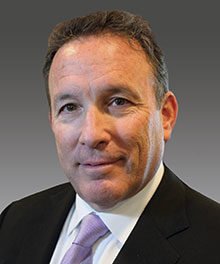The Healthcare Balancing Act

Almost every day the Wall Street Journal and the New York Times have in-depth articles about the current state of our healthcare delivery system, often citing one aspect or another of the Affordable Care Act (aka Obamacare). It’s also not unusual to read about one patient receiving care at one facility at one price and another receiving the same treatment down the street at a much different price. Many lament the difficulty in getting quality care or the cost to our healthcare system of routine care. We still have one of the world’s best healthcare systems. Our challenge is to get to a balance – great care, reasonable cost, more efficient use of big data in diagnosing, treating and cost control. Let’s talk a few specifics.
The WSJ recently reported on the use of assistant surgeons charging very high fees when the patient had no idea in advance that the assistant even existed. He literally woke up from surgery with a possible $100,000-plus additional bill. I know if one of our clients asks a tax partner to prepare a tax return, and agrees on a fee for that service, we can’t then tell him we consulted another “expert” on one aspect of his return and that added significantly to his bill, and expect to get paid. We have engagement letters that spell out what we will do and how we will charge. If we see a need for a change, we tell our client and get an understanding of the change before we go forward.
We love entrepreneurs. They are the heart of Marcum’s clients. Healthcare has developed some areas of entrepreneurial enterprise based on referral networks and use of facilities. Some of these are extraordinarily efficient; for example, outpatient surgical facilities that get healthy patients in and out for routine procedures in half the time and at half the cost of the local hospital. Some, while efficient and convenient for patients, such as cardiology testing in the cardiologist’s office, may be subject to “abuse” with a built-in incentive for testing in questionable circumstances. When Marcum wants to offer an additional service to our clients, say a business valuation when we are helping a client with estate planning, the client has no undue pressure to make that decision. In the cardiologist office, we trust our doctor to do the best for us. But if the doctor were to order a test we don’t “really need,” who is there to question it?
And how do we figure out the pricing for a new drug? The news seems to have a new blockbuster drug monthly, with costs of treatment often in the tens of thousands, if not hundreds of thousands of dollars per patient. The newest treatment for Hepatitis C, a deadly liver disease, cost $1,000 per pill, over $84,000 for a full treatment protocol. How do we decide which patients are going to receive the new drug and which will do fine with the older $25 pill? The drug companies want everyone to use the new drug. The insurance companies want everyone to use the old drug, unless there is a criterion for the use of the new drug. Big data can help make these decisions on a cost- and care-efficient basis – we just need to make sure the decisions made are based on science, not on an insurance company executive’s balance sheet.
At the end of the day, we must control our costs; and we must make sure we have enough primary care providers to take care of the baby boomers now turning 65 and who are living longer than their parents, at some sort of cost-efficient level. We can’t demand unnecessary testing to avoid medical malpractice or to try to uncover conditions that won’t or can’t be treated (many end-of-life costs have no benefit for the patient and really don’t help the doctor, hospital or family, either). It’s a debate we need to have outside of political campaigns, outside of emergency rooms and with all of the constituencies present, on how to keep our quality of care up and not simultaneously bankrupt the system – killing the goose that lays the golden egg.
On a separate note, for those of you who observe the Jewish holiday of Yom Kippur, may you have an easy fast.
David Glusman contributed to this post.
